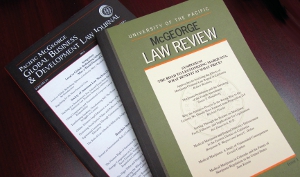Psychotherapeutic Practice as a Model for Postmodern Legal Theory
Document Type
Article
Publication Date
2000
Abstract
Critical legal theory is in need of reconstruction and rehabilitation. By most accounts, the goal of critical legal theory is to reveal the deep structure of the legal system that remains unrecognized in, and even obscured by, the self-understanding of legal actors. Scholars traditionally moved beyond the superficial level of legal doctrine either by adopting a rationalistic orientation and analyzing legal concepts or by adopting an empiricist orientation and analyzing the economic and sociological features of legal institutions. However, during the past thirty years there has been a tremendous diversification in these critical approaches. For example, the critical legal studies movement' has generated a variety of neo-Marxist critiques of legal ideology, law and economics scholars have argued that legal legitimacy is grounded in the maximization of economic efficiency, and advocates of "voice" scholarship have worked to expose the gendered, racist, and homophobic elements of law. In the new scholarly environment everyone seems to be doing critical theory, but as a result of this diverse expansion the very enterprise of critical theory now appears chaotic and disjointed. Some postmodern theorists contend that critical legal theory has been rendered impotent even as it has become ubiquitous for the simple reason that its goal cannot be achieved. They argue that the growing cacophony of critical voices is a symptom of the false hope of modernity that the power of reason can elevate us above the flux of existence to perceive a stable realm of (hidden) reality. Stanley Fish is a particularly vigorous advocate for this view that much of critical legal theory is a relic of the receding modern era. He eviscerates theoretical reflection to the point that it is competent only to describe the impotence of theory. In particular, he contends that critical theory cannot gain a privileged perspective on legal practice either because it is a separate (academic) practice that holds only tangential relevance to legal practice, or because it is simply a rhetorical move within legal practice that can make no defensible claim to serve as the arbiter of the validity of legal practice. Despite critical theorists' claims to be radically progressive, Fish insists that they continue to build on the unstable cornerstone of Enlightenment ideology: the belief that the universalizing powers of reason can overcome the bias and parochialism of localized social practices.
Publication Title
YALE J. LAW & HUMAN.
ISSN
1041-6374
Volume
12
First Page
299
Last Page
395
Recommended Citation
Francis J. Mootz III,
Psychotherapeutic Practice as a Model for Postmodern Legal Theory,
12
Yale J.L. & Human.
299
(2000).
Available at:
https://scholarlycommons.pacific.edu/facultyarticles/655



